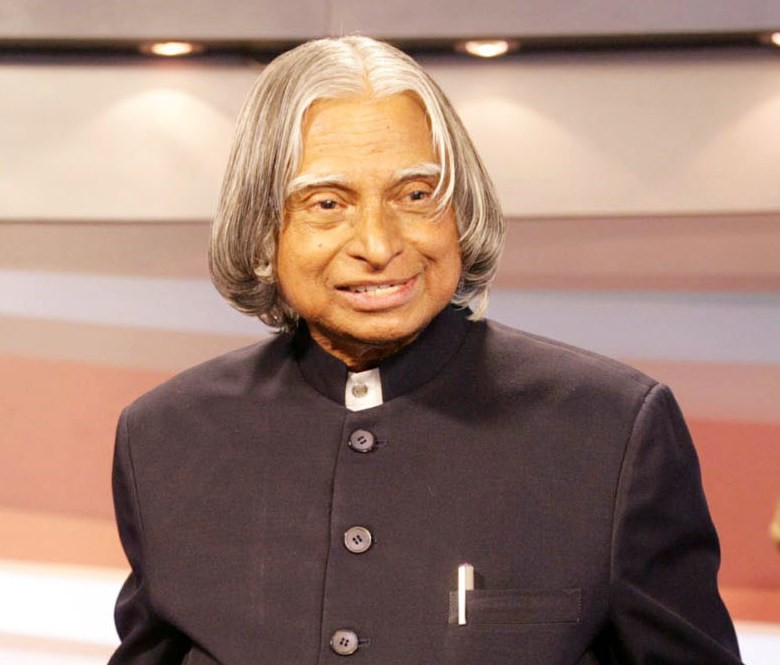Governance
Birth Anniversary of APJ Abdul Kalam
- 24 Oct 2020
- 6 min read
Why in News
Recently, the Union Education Minister has launched the Kalam Program for Intellectual Property Literacy and Awareness Campaign (KAPILA) on the occasion of the 89th birth anniversary of Dr APJ Abdul Kalam.
- He was born on 15th October 1931.
Key Points
- KAPILA:
- Under this campaign, students pursuing education in higher educational institutions will get information about the correct system of application process for patenting their invention.
- Students in higher education institutions of the country are innovating constantly under the guidance of their teachers but they are not aware of the system of filing its patent.
- Through this campaign, students will be able to get benefits from their inventions by patenting them.
- For India to become a USD 5 trillion economy by 2024-25, students and scientists have to be more aware of protecting intellectual property (IP).
- The program will facilitate the colleges and institutions to encourage more and more students to file patents and everyone engaged in research and development must apply to preserve and safeguard their inventions.
- Under this campaign, students pursuing education in higher educational institutions will get information about the correct system of application process for patenting their invention.
- Patents in India:
- Patent: It is the granting of a property right by a sovereign authority to an inventor.
- This grant provides the inventor exclusive rights to the patented process, design, or invention for a designated period in exchange for a comprehensive disclosure of the invention.
- Legislation: Patent filing in India is governed by Patents Act, 1970.
- Latest Updates: In June 2020, the Office of the Principal Scientific Adviser to the Government of India and the Department of Science and Technology (DST) jointly initiated the formulation of a new national Science Technology and Innovation Policy (STIP 2020).
- Patent Data: Between 2005-06 and 2017-18, a total of 5,10,000 patent applications were filed in India out of which nearly three-quarters were filed by foreign entities or individuals.
- In other words, in these 13 years, just 24% of patent claims came from Indians.
- Global Ranking: According to the World Intellectual Property Organisation (WIPO), India stands at the 7th position on number of patents filed.
- China tops the list, followed by the USA and Japan.
- Patent: It is the granting of a property right by a sovereign authority to an inventor.
- Other Announcements:
- The Institution Innovation Council annual report (IIC 2.0) was also presented and the launch of IIC 3.0 was announced.
- IIC was established by the Ministry of Education in 2018.
- IIC envisions to promote innovation in young students by encouraging, inspiring and nurturing them to work with new innovative ideas through periodic activities related to innovation and entrepreneurship.
- So far, IICs have been established in about 1700 higher educational institutions and will be established in 5000 higher educational institutions under IIC 3.0.
- It was decided to celebrate the week of 15th-23rd October as 'Intellectual Property Literacy Week'.
- During the week, a number of activities were organised to create online awareness about the system and the importance of the process of applying for a patent.
- The Institution Innovation Council annual report (IIC 2.0) was also presented and the launch of IIC 3.0 was announced.
Avul Pakir Jainulabdeen Abdul Kalam
- Born: 15th October 1931 at Rameswaram, Tamil Nadu.
- His birth anniversary is celebrated as the National Innovation Day.
- He was an Indian scientist and politician who played a leading role in the development of India’s missile and nuclear weapons programmes like Integrated Guided Missile Development Programme (IGMDP).
- He planned programmes to produce a number of successful missiles, which helped earned him the nickname “Missile Man”.
- In Indian Space Research Organisation (ISRO), he was the project director of the SLV-III, India’s first indigenously designed and produced satellite launch vehicle.
- In 1998, he put forward a countrywide plan called Technology Vision 2020, which he described as a road map for transforming India from a less-developed to a developed society in 20 years.
- The plan called for, among other measures, increasing agricultural productivity, emphasising technology as a vehicle for economic growth, and widening access to health care and education.
- He was sworn in as India’s 11th President in 2002 and completed the full term in 2007.
- Literary Works: Wings of Fire (autobiography), India 2020 - A Vision for the New Millennium, Ignited Minds - Unleashing the power within India, etc.
- Awards: Among his numerous awards were two of the country’s highest honours, the Padma Vibhushan (1990) and the Bharat Ratna (1997).
- Death: 27th July 2015 at Shillong, Meghalaya.






